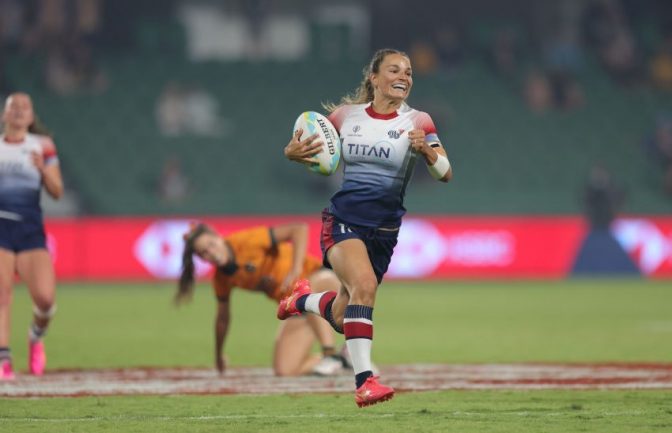Should we be surprised? No. It’s been an uphill struggle since Great Britain first sttempted to pull a squad together for the Rio Olympic Sevens.
Players will still come together to compete in SVNS tournaments, but without financial backing their results are bound to take a nose-dive.
Where else have we seen three unions merging to form a single team? The Pacific islands occasionally, perhaps. Certainly the West Indies in cricket. But asking the English, Scottish and Welsh to combine efficiently was unreasonable.
The proof is in the pudding. Results have rarely risen above the mediocre.
You may be familiar with my criticisms going back across the years. My involvement with Sevens dates back to the Sixties, so this isn’t the attitude of a dyed-in-the-wool 15’s addict.
The way the operation has been conducted has often left me wide-eyed in disbelief. Changes in management have been as frequent as in players. Head coaches have come and gone, and up-to-date news has been hard to discover. Who was really in charge? Who was accountable? Well, one person, who now occupies a leading post, Charlie Hayter, was for a while. One position he held, ’Women’s and Sevens Performance Manager’, shows the unbalanced nature of management positions people were asked to occupy.
Then the selection of players: there were few signs of consistency. You could expect to see certain players picked regularly (Abbie Brown, Amy Wilson-Hardy, Emma Uren), but every squad announcement seemed to include an unexpected player. She might or might not be seen at the next tournament. Players have switched between 7s and 15s without any obvious pattern – Jasmine Joyce-Butchers and Jade Shekells are two recent examples.
GB’s ranking has rarely risen above sixth in the world; mostly it was around eighth. Given the shortage of funding (no government backing available), and the cost of covering three nations, the bosses have decided to cut their losses.
An early downturn was the RFU’s sudden withdrawal of contracts from its English players. That came like a thunderbolt, causing extreme distress to players. By the same token, it ensured a strengthening of the Red Roses enterprise which lasts till today.
We will feel immense sympathy for the players; we wait to see their reactions. The question then is: how many of them will remain faithful to 7s, and how many will switch across to 15s? That was one central consideration in the minds of the people who made the call.
While few, if any of the English players could hope to force their way into the national squad, the SRU and the WRU might be delighted to add a few more talented players to their strength.
Notice the absence of the initials IRFU. That was another cause of disruption to the GB cause. Ireland qualify for the Olympics under a different banner, so no Ulster player could hope to qualify for a GB and Northern Ireland squad. And the Irish men’s squad has recently been disbanded!
The enterprise comes to an end in July. Will Giselle Mather stay in post or look elsewhere?









